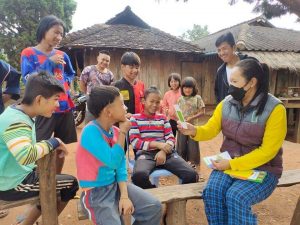
CBID is a development strategy which aims to ensure that people with disabilities are respected and included in their communities on an equal basis in all areas of life. It is people centred, community driven and human rights based.
CBID is an essential contribution to NHI’s vision and a key approach to realize the Convention on the Rights of Persons with Disabilities (CRPD) and leave no one behind in achieving the Sustainable Development Goals (SDGs). The CBID is the natural evolution of Community Based Rehabilitation (CBR) approach, developed by WHO after the Alma-Ata declaration in 1978 with the purpose of: ameliorate the quality of life of people with disabilities and their families, meet their basic needs and ensure their inclusion and participation.
In all our projects related to disability we are trying to apply the same approach, all our CBR program are now developing into CBID programs.
WHAT IS COMMUNITY BASED INCLUSIVE DEVELOPMENT?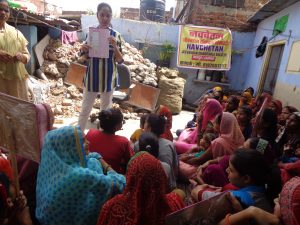
At the beginning it was a strategy aimed to strengthen access to rehabilitation services in limited resource contexts (as former CBR), CBID is now a multi-sectorial approach aimed to ameliorate equal opportunities and social inclusion of people with disabilities, fighting at the same time the perpetual cycle of poverty and disability,working with and through local groups and institutions.
The CBID is being implemented through the combined efforts of people with disabilities, their families and communities with health, educational, professional and social services, both private or public.
CBID addresses challenges experienced by people with disabilities, their families and communities in practical ways. For example, it offers opportunities to join community based self-help groups and livelihoods activities. In the current context and drive for localization of the 2030 Agenda for Sustainable Development (SDGs), CBID is increasingly relevant.
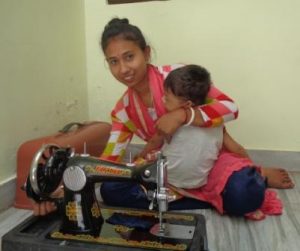
As the former CBR, also CBID programs can include health, education, livelihood, social and empowerment activities, working closely with local partners, local governments and disability association to bring change. CBID particularly promotes the participation and voice of people with disabilities in decision-making processes at the local level. In high risk areas, CBID programs include activities that address community preparedness and resilience for when natural and human-caused disasters strike. CBID enhances and strengthens earlier work described as CBR and encourages more inclusive, responsive and accountable communities.
OUR STAFF
In this kind of approach a big role has been played by our partner, Don Carlo Gnocchi Foundation , which has multi-annual experience in this field in many countries. They are supporting us in disability’s field in Myanmar and they are training all our staff about this approach helping us in slowly upgrading all our projects following these principles. Such a precious collaboration!
Also in India we are following the same principles and we are training all our staff about this approach.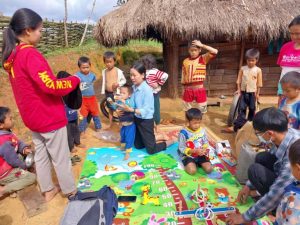
We deeply believe that building strong communities requires a focus on equal access to good quality services and on civic participation aimed at supporting people with disabilities, their families and organizations, to fully participate in the social, economic and political life of their communities.
Thus, CBID is an essential contribution to our Vision for a real New Humanity in which people with disabilities enjoy their human rights and achieve their full potential.
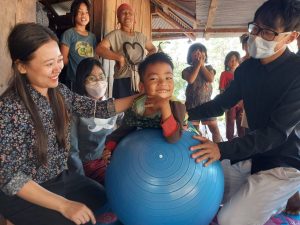

Recent Comments